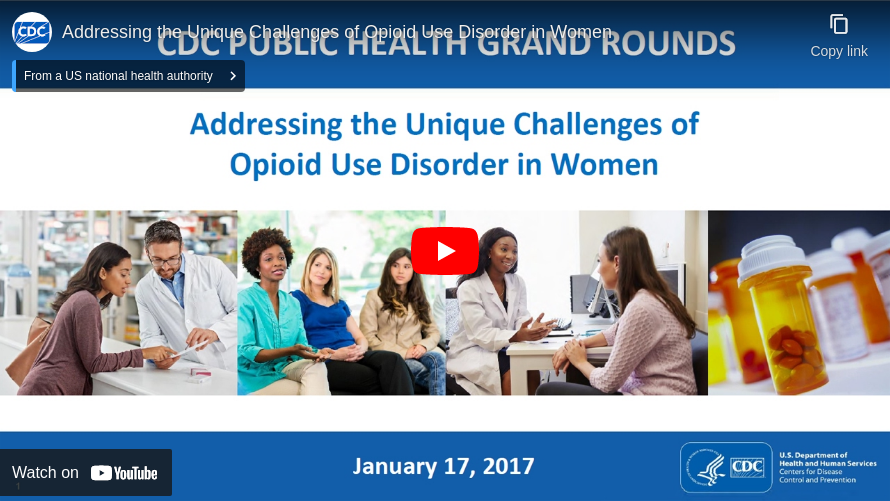Addressing the Unique Challenges of Opioid Use Disorder in Women
Presented on .
Deaths from drug overdoses are the number one cause of injury death in the U.S. Most of these deaths are related to the misuse of prescription opioids and heroin. While men were more likely than women to die of opioid overdose, the number of overdose deaths from opioids among women has increased substantially. Since 1999, women’s deaths have quadrupled from prescription opioid overdose.
Consider the following:
- Nearly 48,000 women died of prescription opioid overdose between 1999 and 2010.
- For every woman who dies of a prescription opioid overdose, over 30 of them go the emergency department for opioid misuse or abuse.
Women’s biological differences may influence susceptibility to substance abuse, which could have implications for prevention and treatment. In order to identify and treat women most at risk, health care providers must be able to recognize and consider these differences.
Join us as we discuss how health care providers, researchers, and the public health community can best address the complexities of opioid use disorder among women. Speakers will give an overview of the federal response to the disorder, along with approaches to care and prevention of substance use.
Dr. John Iskander and Dr. Mishka Terplan, discuss how the opioid epidemic is impacting women differently than men. Tune in to hear how women’s gender and biological differences need to be considered when providing care and recommending policy on federal, state, and local levels.
- Karin A. Mack, PhD
- Associate Director for Science,
Division of Analysis Research and Practice Integration
National Center for Injury Prevention and Control, CDC
"The Opioid Overdose Crisis and the Federal Response"
- Linda Frazier, RN, MCHES, CADC
- Director, Addictions Initiatives
Chair, APHA ATOD Section, Advocates for Human Potential, Inc.
"Comprehensive Approaches to Care of Women with Substance Use Disorders"
- Mishka Terplan, MD, MPH, FACOG, FASAM
- Professor, OBGYN and Psychiatry
Virginia Commonwealth University Medical Center
"Prevention of Substance Use Through Integration into Healthcare"
- John Iskander, MD, MPH
- Scientific Director
- Phoebe Thorpe, MD, MPH
- Deputy Scientific Director
- Susan Laird, MSN, RN
- Communications Director
Get notified about the latest updates from Public Health Grand Rounds right in your inbox by setting up an alert today!
Get notified about the latest updates from Public Health Grand Rounds right in your inbox by setting up an alert today!Sign Up
Get notified about the latest updates from Public Health Grand Rounds right in your inbox by setting up an alert today!
CDC Course Code: PHGR10
CPE UAN: 0387-0000-17-015-H04-P
For more information, see Grand Rounds Continuing Education.

Approximately half of people with a chronic condition don’t take their prescribed medications. Reasons for “medication non-adherence” are varied. Learn about the latest research, interventions, education, and emerging tools and technologies that may help overcome these barriers to medication non-adherence.

The expanded role of pharmacists will position them to have greater impact in health care and public health. Beyond the dispensing of medications, pharmacists also provide a spectrum of prevention and treatment services to help improve health outcomes. Learn about the importance of including pharmacists in team-based care.



